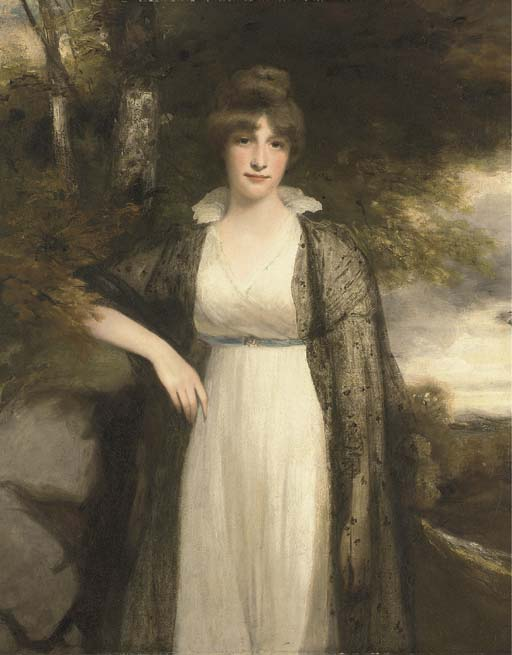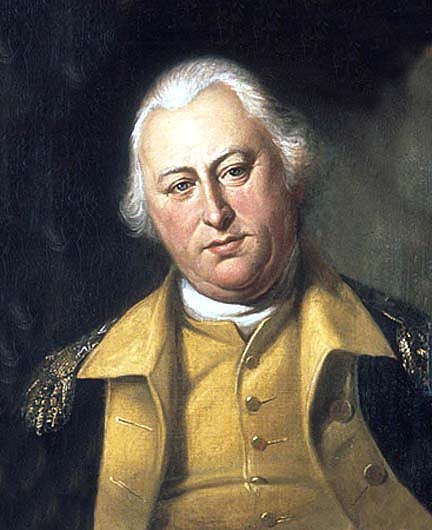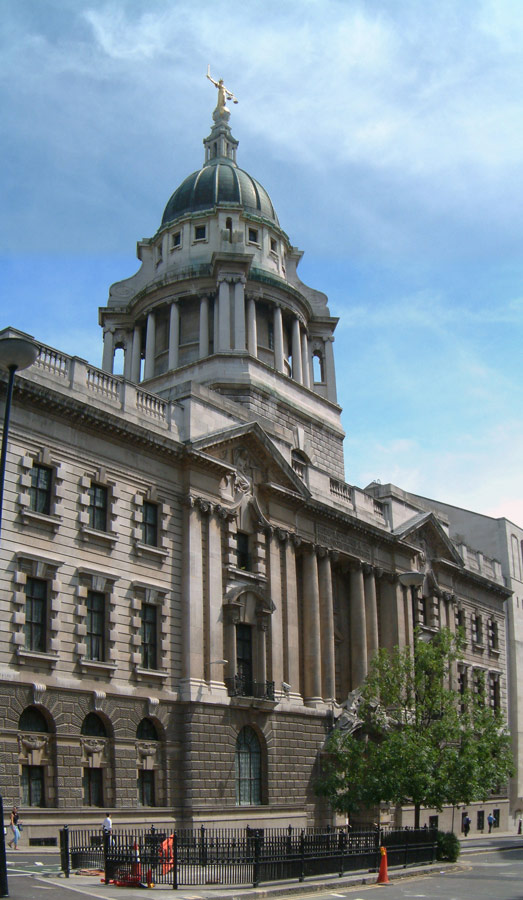|
Sir John Perring, 1st Baronet
Sir John Perring, 1st Baronet (26 April 1765 – 30 January 1831), Fellow of the Society of Antiquaries of London, FSA, of Membland in the parish of Holbeton, Devon, was a Member of Parliament and served as Lord Mayor of London in 1803. He was a commissioner for exchequer bills and senior partner of the banking firm ''John Perring, Shaw, Barber & Co.'', which having suffered in the Panic of 1825, resulted in Perring losing his estates. On 3 October 1808 he was created a baronet, first of the Perring baronets of Membland, Devon. Origins Perring was described as "the son of a poor man".Collinge He was born in about 1765, the eldest son of Philip Perring (died 1797), of Denbury House, Church Street, Modbury in Devon, a serge maker, by his wife and cousin Susanna Legassick, daughter of Richard (or Pascoe) Legassick, apparently a wealthy cloth merchant at Modbury. The estate of Membland in the parish of Holbeton had been purchased by John Perring's uncle Peter Perring from John Bulteel ... [...More Info...] [...Related Items...] OR: [Wikipedia] [Google] [Baidu] |
Fellow Of The Society Of Antiquaries Of London
A fellow is a concept whose exact meaning depends on context. In learned or professional societies, it refers to a privileged member who is specially elected in recognition of their work and achievements. Within the context of higher educational institutions, a fellow can be a member of a highly ranked group of teachers at a particular college or university or a member of the governing body in some universities (such as the Fellows of Harvard College); it can also be a specially selected postgraduate student who has been appointed to a post (called a fellowship) granting a stipend, research facilities and other privileges for a fixed period (usually one year or more) in order to undertake some advanced study or research, often in return for teaching services. In the context of research and development-intensive large companies or corporations, the title "fellow" is sometimes given to a small number of senior scientists and engineers. In the context of medical education in No ... [...More Info...] [...Related Items...] OR: [Wikipedia] [Google] [Baidu] |
Sheriffs Of The City Of London
Two sheriffs are elected annually for the City of London by the Liverymen of the City livery companies. Today's sheriffs have only nominal duties, but the historical officeholders had important judicial responsibilities. They have attended the justices at the Central Criminal Court, Old Bailey, since its original role as the court for the City and Middlesex. The sheriffs live in the Central Criminal Court, Old Bailey, during their year of service, so that one of them can always be attendant on the judges. In Court No 1 the principal chairs on the bench are reserved for their and the Lord Mayor's use, with the Sword of the City hanging behind the bench. It is an invariable custom that the Lord Mayor of London must previously have served as a sheriff. By a "custom of immemorial usage in the City", Howell et al., p. 191 the two sheriffs are elected at the Midsummer Common Hall by the Liverymen by acclamation, unless a ballot is demanded from the floor, which takes place withi ... [...More Info...] [...Related Items...] OR: [Wikipedia] [Google] [Baidu] |
John Graves Simcoe
John Graves Simcoe (25 February 1752 – 26 October 1806) was a British Army general and the first lieutenant governor of Upper Canada from 1791 until 1796 in southern Ontario and the Drainage basin, watersheds of Georgian Bay and Lake Superior. He founded York, Upper Canada, York, which is now known as Toronto, and was instrumental in introducing institutions such as courts of law, trial by jury, English law, English common law, and fee simple, freehold land tenure, and also in the abolition of slavery in Canada. His long-term goal was the development of Upper Canada (Ontario) as a model community built on aristocratic and conservative principles, designed to demonstrate the superiority of those principles to the republicanism of the United States. His energetic efforts were only partially successful in establishing a local gentry, a thriving Church of England, and an anti-American coalition with select indigenous nations. He is seen by many Canadians as a founding figure in Ca ... [...More Info...] [...Related Items...] OR: [Wikipedia] [Google] [Baidu] |
Lord Hobart
Robert Hobart, 4th Earl of Buckinghamshire, (6 May 17604 February 1816), styled Lord Hobart from 1793 to 1804, was a British Tory politician. Life Buckinghamshire was born at Hampden House, the son of George Hobart, 3rd Earl of Buckinghamshire and Albinia, daughter of Lord Vere Bertie, younger son of Robert Bertie, 1st Duke of Ancaster and Kesteven. He was educated at Westminster School, London and later served in the American Revolutionary War. Political career Buckinghamshire was a Member of Parliament (MP) in the Irish House of Commons for Portarlington from 1784 to 1790 and thereafter for Armagh Borough from 1790 to 1797. He sat also in the British House of Commons for the rotten borough of Bramber in 1788, a seat he held until 1790, and then for Lincoln from 1790 to 1796. He acted as '' aide-de-camp'' to successive Lord Lieutenants of Ireland from 1784 onwards, and from 1789 to 1793 he was chief secretary to the Lord Lieutenant, exerting his influence in this country t ... [...More Info...] [...Related Items...] OR: [Wikipedia] [Google] [Baidu] |
Secretary Of War
The secretary of war was a member of the U.S. president's Cabinet, beginning with George Washington's administration. A similar position, called either "Secretary at War" or "Secretary of War", had been appointed to serve the Congress of the Confederation under the Articles of Confederation between 1781 and 1789. Benjamin Lincoln and later Henry Knox held the position. When Washington was inaugurated as the first President under the Constitution, he appointed Knox to continue serving as Secretary of War. The secretary of war was the head of the War Department. At first, he was responsible for all military affairs, including naval affairs. In 1798, the secretary of the Navy was created by statute, and the scope of responsibility for this office was reduced to the affairs of the United States Army. From 1886 onward, the secretary of war was in the line of succession to the presidency, after the vice president of the United States, the Speaker of the House of Representatives, ... [...More Info...] [...Related Items...] OR: [Wikipedia] [Google] [Baidu] |
River Yealm
The Yealm is a river in Devon in England that rises above sea level on the Stall Moor mires of south Dartmoor and travels to the sea, passing through Cornwood, Lee Mill and Yealmpton, a mid-sized village with a population of c.2,000 which is its largest settlement, before reaching its estuary which forms a ria bounded on its western side by Wembury. A deep inlet of this ria forms the waterfront to Newton Ferrers and Noss Mayo on its eastern side. Harbour The harbour authority is made up of representatives from the civil parish councils of Wembury, Yealmpton, Brixton and "Newton and Noss". Neighbouring catchment areas It is the river and estuary between the River Plym which discharges at Plymouth and the River Erme which discharges by Meadowsfoot Beach, Mothecombe in Holbeton parish.Grid square map ... [...More Info...] [...Related Items...] OR: [Wikipedia] [Google] [Baidu] |
Minuet
A minuet (; also spelled menuet) is a social dance of French origin for two people, usually in time. The English word was adapted from the Italian ''minuetto'' and the French ''menuet''. The term also describes the musical form that accompanies the dance, which subsequently developed more fully, often with a longer musical form called the minuet and trio, and was much used as a movement in the early classical symphony. Dance The name may refer to the short steps, ''pas menus'', taken in the dance, or else be derived from the ''branle à mener'' or ''amener'', popular group dances in early 17th-century France. The minuet was traditionally said to have descended from the ''bransle de Poitou'', though there is no evidence making a clear connection between these two dances. The earliest treatise to mention the possible connection of the name to the expression ''pas menus'' is Gottfried Taubert's ''Rechtschaffener Tantzmeister'', published in Leipzig in 1717, but this source ... [...More Info...] [...Related Items...] OR: [Wikipedia] [Google] [Baidu] |
Guildhall
A guildhall, also known as a "guild hall" or "guild house", is a historical building originally used for tax collecting by municipalities or merchants in Great Britain and the Low Countries. These buildings commonly become town halls and in some cases museums while retaining their original names. Guildhalls as town hall in the United Kingdom In the United Kingdom, a guildhall is usually a town hall: in the vast majority of cases, the guildhalls have never served as the meeting place of any specific guild. A suggested etymology is from the Anglo Saxon "''gild'', or "payment"; the guildhall being where citizens came to pay their rates. The London Guildhall was established around 1120. For the Scottish municipal equivalent see tolbooth. List of guildhalls in the United Kingdom *Andover Guildhall * Barnstaple Guildhall * Bath Guildhall *Beverley Guildhall *Bewdley Guildhall *Blakeney Guildhall *Boston Guildhall * Brecon Guildhall *Bristol Guildhall *Bury St Edmunds Guildhall *Cam ... [...More Info...] [...Related Items...] OR: [Wikipedia] [Google] [Baidu] |
Napoleonic Wars
The Napoleonic Wars (1803–1815) were a series of major global conflicts pitting the French Empire and its allies, led by Napoleon I, against a fluctuating array of European states formed into various coalitions. It produced a period of French domination over most of continental Europe. The wars stemmed from the unresolved disputes associated with the French Revolution and the French Revolutionary Wars consisting of the War of the First Coalition (1792–1797) and the War of the Second Coalition (1798–1802). The Napoleonic Wars are often described as five conflicts, each termed after the coalition that fought Napoleon: the Third Coalition (1803–1806), the Fourth (1806–1807), the Fifth (1809), the Sixth (1813–1814), and the Seventh (1815) plus the Peninsular War (1807–1814) and the French invasion of Russia (1812). Napoleon, upon ascending to First Consul of France in 1799, had inherited a republic in chaos; he subsequently created a state with stable financ ... [...More Info...] [...Related Items...] OR: [Wikipedia] [Google] [Baidu] |
Napoleon Bonaparte
Napoleon Bonaparte ; it, Napoleone Bonaparte, ; co, Napulione Buonaparte. (born Napoleone Buonaparte; 15 August 1769 – 5 May 1821), later known by his regnal name Napoleon I, was a French military commander and political leader who rose to prominence during the French Revolution and led Military career of Napoleon Bonaparte, successful campaigns during the French Revolutionary Wars, Revolutionary Wars. He was the ''de facto'' leader of the First French Republic, French Republic as First Consul from 1799 to 1804, then Emperor of the French from 1804 until 1814 and again in Hundred Days, 1815. Napoleon's political and cultural legacy endures to this day, as a highly celebrated and controversial leader. He initiated many liberal reforms that have persisted in society, and is considered one of the greatest military commanders in history. His wars and campaigns are studied by militaries all over the world. Between three and six million civilians and soldiers Napoleonic Wa ... [...More Info...] [...Related Items...] OR: [Wikipedia] [Google] [Baidu] |
Recorder Of London
The Recorder of London is an ancient legal office in the City of London. The Recorder of London is the senior circuit judge at the Central Criminal Court (the Old Bailey), hearing trials of criminal offences. The Recorder is appointed by the Crown on the recommendation of the City of London Corporation with the concurrence of the Lord Chancellor. The Recorder's deputy is the Common Serjeant of London, appointed by the Crown on the recommendation of the Lord Chancellor. The Recorder of London is, since 14 April 2020, Mark Lucraft. Background The first Recorder of London was appointed in 1298. Originally it seems likely that the Recorder would have recorded pleas in the court of the Lord Mayor and the aldermen and delivered their judgments. A charter granted by Henry VI in 1444 appointed the Recorder ''ex officio'' a conservator of the peace. The Recorder increasingly exercised judicial functions thereafter, eventually becoming the principal judge in the City of London. The R ... [...More Info...] [...Related Items...] OR: [Wikipedia] [Google] [Baidu] |
John Silvester (lawyer)
Sir John Silvester, 1st Baronet (7 September 1745 – 30 March 1822), FRS, FSA, DCL, was an English lawyer and Common Serjeant of London from 1790 to 1803, and Recorder of London from 1803 until his death in 1822. Born in Yardley House in Chingford, Silvester was the son of Sir John Baptist Silvester M.D., FRS (died 1789), of Dutch descent and physician to the army in the Low Countries, under the Duke of Cumberland during the War of the Austrian Succession. In 1753 aged 8 John Silvester attended Merchant Taylors' School when James Townley was the Headmaster. He took part in the theatrical activities encouraged by Townley and was Head Monitor in 1761. He attended St John's College, Oxford, from 1764 and took his BCL in 1771. On qualifying in the Law he became a barrister at the Old Bailey. Originally a City Common Pleader, in 1790 he was chosen by the City of London Corporation to take up the post of Common Serjeant of London, and, on the death of Sir John William Ros ... [...More Info...] [...Related Items...] OR: [Wikipedia] [Google] [Baidu] |




.png)


